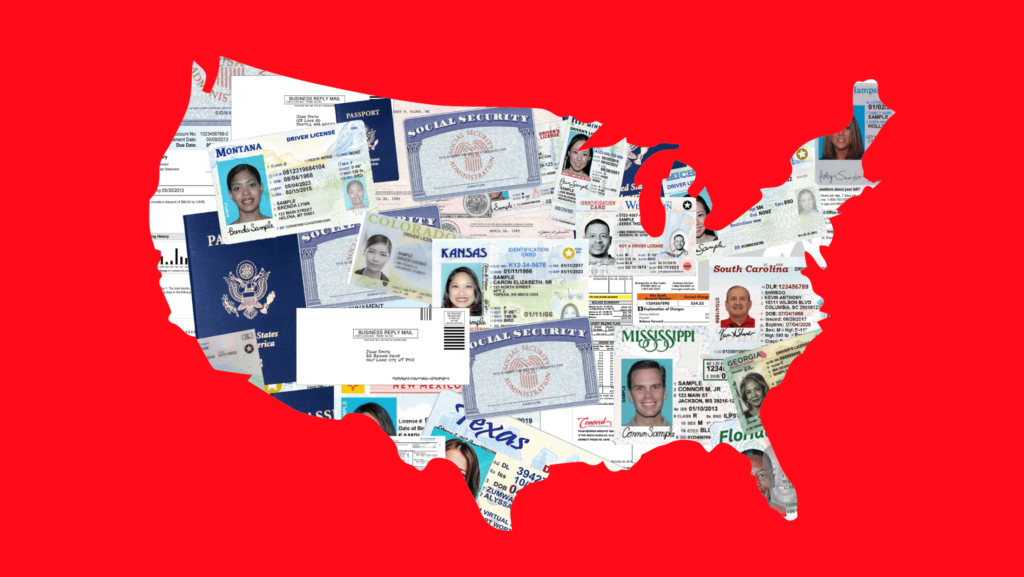Change of Voting Plans? Make Sure You Have What You Need.

We’re less than two weeks out from a historically consequential election. Throughout this year we’ve experienced an unprecedented confluence of circumstances that have already affected when and how we vote. Because of COVID-19, many of us are choosing to cast our ballots by mail instead of in-person. But with the massive amounts of misinformation and confusion we’ve seen raised around mail-in ballots, we’re also seeing Americans deciding to alter their voting plans in these final weeks.
Too many of us don’t realize that — based on the method you choose to vote — there are real implications for the type of documentation (like a driver’s license or state ID) you may need to make your vote count on Nov. 3.
So what happens if you change your mind after receiving your mail-in ballot and decide to go to the polls? As with most voting issues, it depends on where you live.
If you live in one of the following states, you may need to submit a copy of an ID to vote by mail or absentee ballot:
- Alabama
- Arkansas
- Kansas
- Kentucky
- Louisiana
- Missouri
- North Dakota
- Ohio
- Oklahoma
- Pennsylvania
- South Dakota
- Wisconsin
Whether or not you’ve brought your ballot to your polling place, without an ID you may have to vote a provisional ballot if you live in one of the above or one of the following other 23 states with an in-person voter ID law (and which may then require you to present your ID within a short, state-prescribed period of time after the election in order for your ballot to count):
- Alaska
- Arizona
- Colorado
- Connecticut
- Delaware
- Florida
- Georgia
- Hawaii
- Idaho
- Indiana
- Iowa
- Michigan
- Mississippi
- Montana
- New Hampshire
- Rhode Island
- South Carolina
- Tennessee
- Texas
- Utah
- Virginia
- Washington
- West Virginia
People who have ID, especially a current driver’s license in their state, often have a hard time understanding the burdensome, time-consuming and expensive contortions their fellow citizens must undergo to obtain valid identification to vote. (However, many drivers were awakened to these obstacles while pursuing their REAL ID, as will millions more in the lead-up to next year’s October deadline.) To secure a driver’s license or state ID, which are the only two types of identification that are common to all 35 states’ voter ID laws, you must provide an original or certified copy of your official birth certificate and of any name change since then…an added hoop through which women must jump since 80% of married women in the U.S. change their names. Or you may need to secure a court-ordered name-change document so it coincides with the name in your other documents, such as your Social Security card. Speaking of which, you may also encounter the Catch-22 phenomenon of needing an ID to procure a replacement Social Security card or certified copy of your birth certificate, either or both of which you are seeking in order to obtain an ID to vote. Furthermore, how can you submit proof of residency when all the utility bills are sent to only one adult such as in a family or the landlord of an apartment building? Of course, what if you cannot afford the time off from your job, let alone the cost, to travel 150 miles roundtrip to visit the closest ID-issuing office?
Vote with confidence has been VoteRiders’ mantra since the 2014 electoral cycle, when our data showed that more voters sought confirmation of their ID’s validity than help to obtain ID.
So, who are these 25-40 million citizens who do not have a government-issued photo ID? They are primarily those who do not have a current driver’s license in their state: communities of color including one in four Black Americans, students and other young people (e.g., 20% of those aged 18-24), 25% of U.S. adults who live with a disability, older adults who are no longer driving if they ever did, and people with low income.
Vote with confidence has been VoteRiders’ mantra since the 2014 electoral cycle, when our data showed that more voters sought confirmation of their ID’s validity than help to obtain ID. Our on-the-ground experience, corroborated by several reputable studies, proves another huge but insufficiently recognized way that voter ID has a disenfranchising impact. Tens if not hundreds of thousands of voters in every state are so confused and intimidated by complicated and ever-changing laws that they are deterred from voting even though they actually have an acceptable ID — or do not need one. So we and our 4,000 volunteers are doing everything we can to encourage voters to check NOW to ensure they know the rules in their state and have required ID. VoteRiders not only educates voters in need (both directly and through our almost 700 partner organizations), but we assist them — soup to nuts — to obtain their ID. Aided by pro bono lawyers from several of the top 50 global law firms, we help to secure the required underlying documents as well as the ID itself, we cover the document costs when needed and we arrange transportation to ID-issuing offices. Our goal is for voters to feel not only confident to vote but confident in the face of a challenge at the polls!
Kathleen Unger is the Founder and President of VoteRiders and a leading expert on voter ID laws.